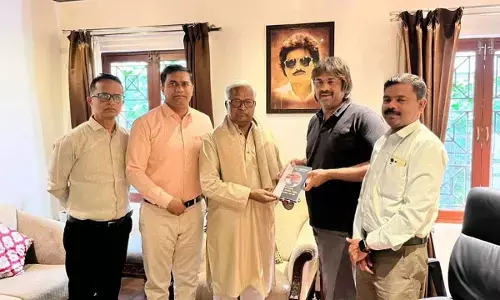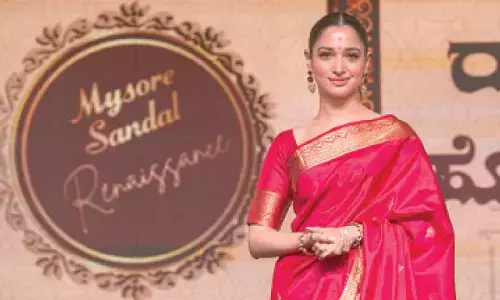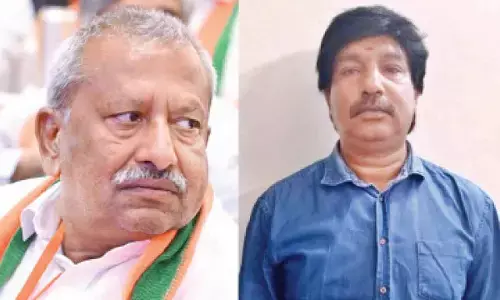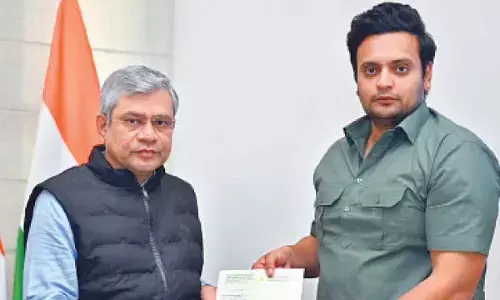Uniform Civil Code: Prickly issues
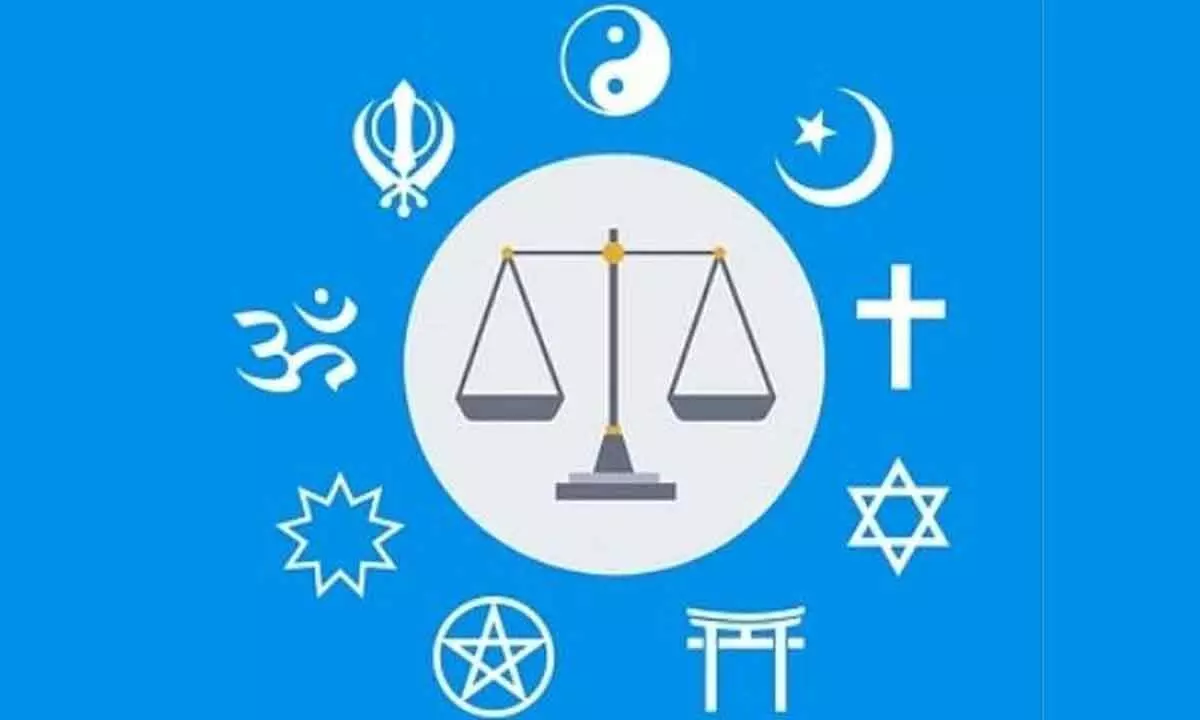
The proposal and direction for Uniform Civil Code (UCC) is placed in the Constitution of India in its directive principles. As the civil code matters are placed in the concurrent list of the constitution, state legislatures also have the power to make UCC legislation. Goa already has a Uniform Civil Code.
The UCC calls for the formulation of one law for India, which would be applicable to all religious communities in matters such as marriage, divorce, inheritance, adoption. This falls under Article 44 of the Constitution, which lays down that the state shall endeavour to secure a Uniform Civil Code for the citizens throughout the territory of India.
The UCC is again in the news nowadays due to the proposal of some State governments to introduce it in their States. This could be a clamour for votes as usual as the UCC has a tremendous potential to consolidate the vote banks in our highly divided society. The issue has been at the center of political narrative and debate keeps raging over it now and then.
The origins of the UCC go back to the British rule wherein a report was submitted in 1835 highlighting the need for uniformity in the codification of Indian law relating to crimes, evidence and contracts and for recommending that personal law of Hindus and Muslims be kept out of its purview.
A committee was formed by the British headed by B N Rau to codify the Hindu law in 1941. It recommended a codified Hindu law with equal rights to women. Later, when it was time for the Draft Committee to look into the issue, a provision of the Draft Constitution requiring the state to endeavour to secure for the citizens a uniform civil code valid throughout India generated some criticism on the ground that it could amount to interference in the personal laws of the minorities.
It must be noted that the provision was included only in the legally non-enforceable Directive Principles of State Policy. But, this remained a controversial one. The problem lies in the perception of the issue itself. This UCC is all about a secular issue of gender equality and rights of all citizens and equal protection of laws. Has it been treated thus? No.
From the very beginning this has been politicised and communalised in the country. The clause has been discussed in several committees and at several places before it came to the Constituent Assembly in 1948. The ground for the debate of the same in that year has been that it infringed the fundamental right mentioned in Article 19 and hence anti-minority.
The House had to debate it in proper perspective but the debate always veered around the anti-minority sentiment. The House had already accepted it in principle that if a religious practice followed thus far covered a secular activity or fell within the field of social reform or social welfare, it would be open to Parliament to make laws about it without infringing on this fundamental right of a minority.
Those who argue that Article 19 would not permit the UCC should know that it permits legislation covering secular activities. (The whole object of the Article is that as and when the Parliament thinks proper, or rather when the majority in the Parliament thinks proper, an attempt be made to unify the personal law of the country).
Here is where K M Munshi argued in favour of the legislation "when you want to consolidate a community, you have to take into consideration the benefit which may accrue to the whole community and not to the customs of a part of it. It is not, therefore, correct to say that such an act is tyranny of the majority."
The argument of those who want a status quo fails to convince those who prefer to distance religion from personal law. Religion, be it Hindu or Muslim or for that matter any other, has always been construed as to cover the whole field of life. But, changing times demand that we attempt to segregate religion from some matters for making a secular legislation.
UCC is meant to replace currently applicable various laws applicable to various respective communities which are inconsistent with one another. These laws include the Hindu Marriage Act, Hindu Succession Act, Indian Christian Marriages Act, Indian Divorce Act, Parsi Marriage and Divorce Act. Meanwhile certain ones like Sharia (Islamic laws) are not codified and solely based upon their religious scriptures.
The proposals in UCC include monogamy, equal rights for son and daughter over inheritance of paternal property and gender & religion neutral laws in regards of will charity, divinity, guardianship and sharing of custody. The laws may not result in much difference to the status of Hindu society as they have already been applicable on Hindus through Hindu code bills for decades.
Dr B R Ambedkar in his reply to the debate on UCC on November 23, 1948 said he could not accept the amendments introduced by some members. Refusing "to touch on the merits of the question as to whether this country should have a civil code or it should not," he said he was, however, surprised at the statement of Hussain Imam, in rising to support the amendments, "who asked whether it was possible and desirable to have a uniform code of laws for a country so vast as this is."
He further stated "I am surprised for the simple reason that we have in this country a uniform code of laws covering almost every aspect of human relationship. We have a uniform and complete criminal code operating throughout the country, which is contained in the Penal Code and the Criminal Procedure Code. We have the law of transfer of property, which deals with property relations and which is operative throughout the country. Then there are the Negotiable Instruments Acts; and I can cite innumerable enactments which prove that this country has practically a civil code, inform in its content and applicable to the whole of the country".
"The only province the civil law has not been able to invade so far is marriage and succession. It is this little corner which we have not been able to invade so far and it is the intention of those who desire to have Article 35 as part of the Constitution to bring about that change. Therefore, the argument that whether we should attempt such a thing seems to me somewhat misplaced for the simple reason that we have, as a matter of fact, covered the whole lot of the field which is covered by a uniform civil code in this country. It is, therefore, too late now to ask the question whether we could do it. As I say, we have already done it," he further added.
In addition, referring to the different laws prevailing in the country which were equally applicable to all in those regions – like the 'Marumakkathayyam law' in North Malabar, a matriarchal law applicable to even Muslims in the area – Dr Ambedkar said some portions of the Hindu law which were suitable were included in the uniform code only because of their suitability and not because those were Hindu codes.
Even if the code was framed in the future, Dr Ambedkar said it would not be applicable to all but only to those who make a declaration that they are prepared to be bound by it, "so that in the initial stage the application of the code may be purely voluntary." Beyond a point, he did not see any substance in the amendments proposed in the Constituent Assembly.
Is not it a wise observation? The genius of Dr Ambedkar was in it – the practicality of the laws and how should it be interpreted.





